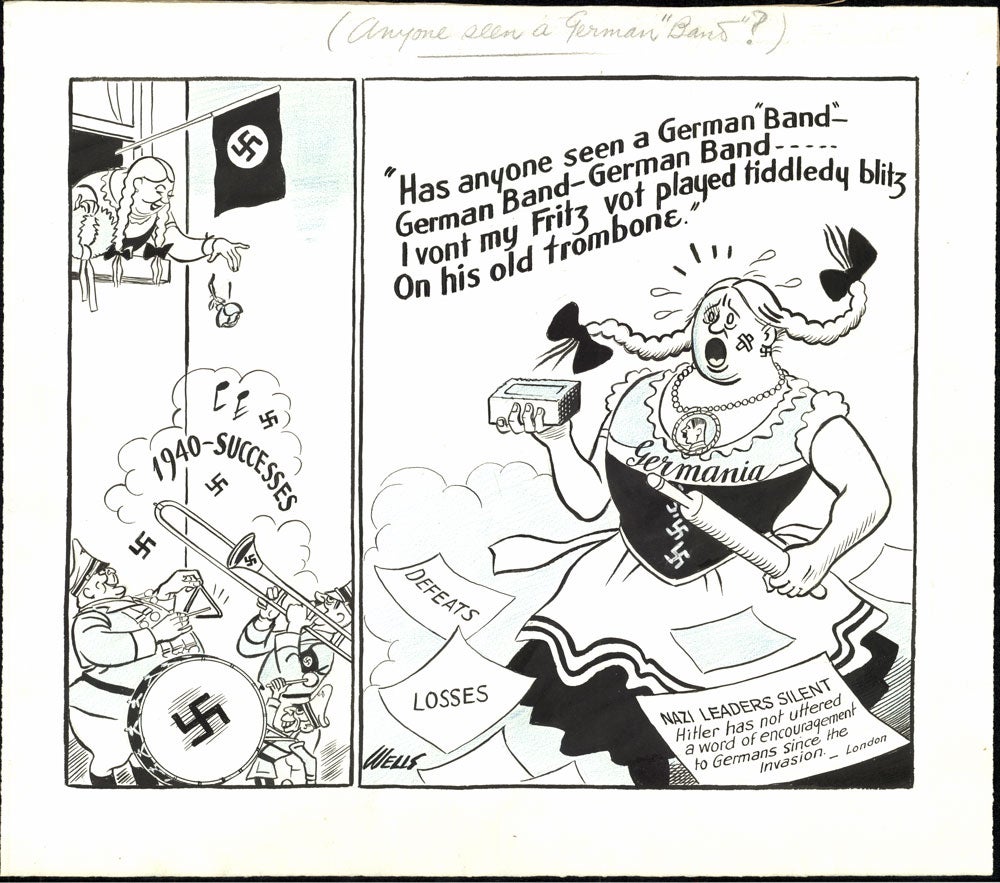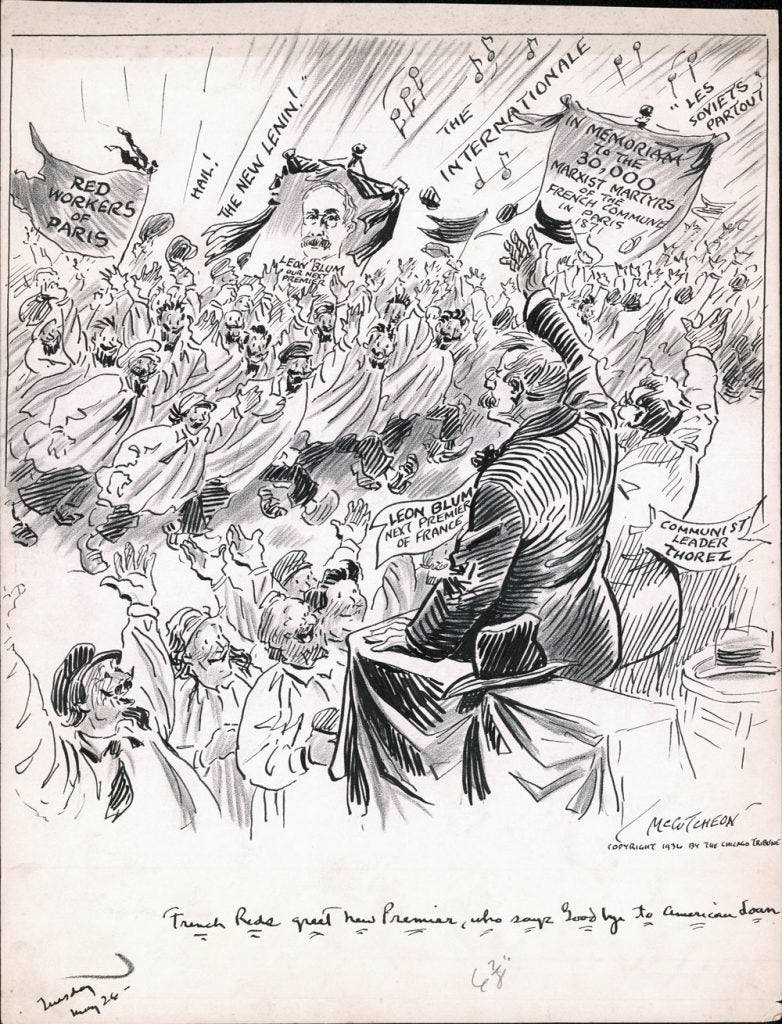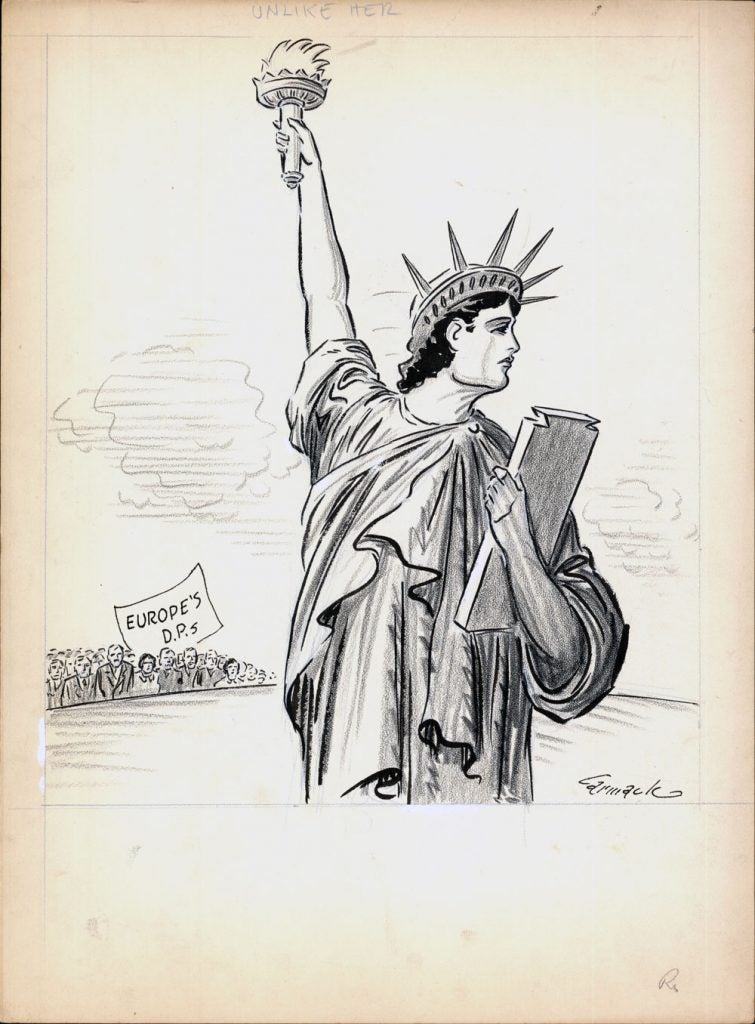
“Another Case of Mental Derangement” (June 16, 1941)
by Ty Mahon (1896-?)
20 x 20 in., ink on board
Coppola Collection
Mahon was the editorial cartoonist for the Philadelphia Evening Bulletin as well as a general illustrator Esquire during the 1930s and 1940s. He is a bit of a ghost. The 1940 census lists him as living in Philadelphia and being born in 1896.
Appointed Deputy Führer to Adolf Hitler in 1933, Hess served in that position until 1941, when he flew solo to Scotland in an attempt to negotiate peace with the United Kingdom during World War II. He was taken prisoner and eventually convicted of crimes against peace, serving a life sentence until his suicide.
Hitler decreed in 1939 that Hermann Goering was his official successor, and named Hess as next in line. In addition to appearing on Hitler’s behalf at speaking engagements and rallies, Hess signed into law much of the government’s legislation, including the Nuremberg Laws of 1935, which stripped the Jews of Germany of their rights in the lead-up to the Holocaust.
Concerned that Germany would face a war on two fronts as plans progressed for Operation Barbarossa, the invasion of the Soviet Union scheduled to take place in 1941, Hess decided to attempt to bring Britain to the negotiating table by travelling there himself to seek meetings with the British government.
Before his departure from Germany, Hess had given his adjutant a letter addressed to Hitler that detailed his intentions to open peace negotiations with the British. He delivered the letter to Hitler at the Berghof around noon on May 11. After reading the letter, Hitler let loose an outcry heard throughout the entire Berghof and sent for a number of his inner circle, concerned that a putsch might be underway.
Hitler worried that his allies, Italy and Japan, would perceive Hess’s act as an attempt by Hitler to secretly open peace negotiations with the British. Hitler contacted Mussolini specifically to reassure him otherwise. For this reason, Hitler ordered that the German press should characterize Hess as a madman who made the decision to fly to Scotland entirely on his own, without Hitler’s knowledge or authority.
The official press bulletin said that Hess had become “a deluded, deranged and muddled idealist, ridden with hallucinations traceable to World War injuries“… hence the cartoon’s title of “another case” of derangement.
Hitler stripped Hess of all of his party and state offices, and secretly ordered him shot on sight if he ever returned to Germany. He abolished the post of Deputy Führer.
Hess was already in a deteriorated mental state by the Nuremburg Trials, where he was sentenced to life imprisonment. Forty years later, while in custody in Spandau, he died by hanging himself in 1987 at the age of 93.
After his death, the prison was demolished to prevent it from becoming a neo-Nazi shrine.













